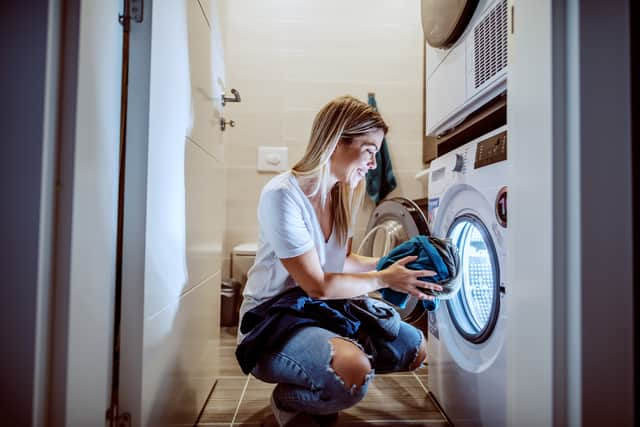UK households could get £10 a day to use appliances off-peak as National Grid warns of winter blackouts
and live on Freeview channel 276
Households could be paid to use their appliances at specific times this winter amid warnings of blackouts.
A new scheme unveiled by the National Grid Electricity Operator (ESO) will offer financial incentives for switching energy usage to off-peak hours. It means that people could be paid to run their washing machines at night, or charge their electric cars away from times of high demand.
Advertisement
Hide AdAdvertisement
Hide AdThe voluntary scheme is scheduled to run from November to March and asks people and businesses who have signed up to reduce or move their electricity usage outside certain hours of the day.
National Grid said on Monday that it was considering whether to pay households across Britain to reduce their energy use to help out on Tuesday evening amid concerns that energy supplies could get tight. The ESO said it was contemplating whether to activate the first ever live run of its Demand Flexibility Service – which is designed to avoid blackouts.


How will the scheme work?
The “Demand Flexibility Service” is designed to help ease the pressure on power networks as the UK braces for a winter of potential supply challenges. The money-back service is to be implemented by energy suppliers and monitored using a smart meter, with a minimum reward of £10 per day being issued to households who prioritise off-peak electricity usage.
The voluntary scheme is scheduled to run from November to March and is being introduced to help prevent winter blackouts. The scheme was launched earlier this month and has already been tested twice but has not yet run live.
Advertisement
Hide AdAdvertisement
Hide AdJack Rigg, the National Grid’s ESO director of corporate affairs, said: “The demand flexibility service is a first of its kind and a smart way for signed-up consumers in homes and businesses to save money and back Britain. If you put your washing machine or other electrical appliances on at night instead of the peak in the early evening, you can get some money back when we all need it.”
Without the scheme, there could be cold and still days creating high demand and low levels of wind power, meaning there may be a need to interrupt supply to some customers for limited periods, National Grid ESO’s winter outlook said.
The ESO also warned that if there is not enough gas to keep the country’s power stations going in January it could force distributors to cut off electricity to households and businesses for three-hour blocks during the day.
How can households sign up?
The scheme is administered by energy suppliers and households have to register their interest in taking part in advance. Those who sign up will then get a text or other message saying that the programme will run later in the day.
Advertisement
Hide AdAdvertisement
Hide AdIf they use less electricity than they normally do during the allotted hours they will be paid for the savings. Households can still use electricity during peak hours and will not be punished if the same amount, or more, electricity is used than usual during that period.
For example, you could receive a text on a Thursday saying that high demand is expected tomorrow at between 5pm and 7pm. If you then use less electricity during those hours than you would normally, your supplier will reward you.
Households can still use electricity during peak hours and will not be punished if the same amount, or more, electricity is used than usual during that period. Signing up for the scheme does not give the grid the right to shut off supply to your home and you will still have total control over your electricity use.
Many suppliers will probably require a smart meter for you to sign up. The ESO says that it needs half-hourly data from households to run the scheme, but if your supplier can figure out a different way to get data on your use every half an hour then you might still be able to sign up.
Advertisement
Hide AdAdvertisement
Hide AdOvo Energy, which is running its own version of the scheme, said that a typical household uses a fifth of their daily energy between 4pm and 7pm and customers could make a saving up to £100 if they signed up to use energy at greener times of the day.
How the money is paid will depend on the supplier. Some may issue vouchers, others might return cash to you, and many will likely just cut the amount from your energy bill.
Comment Guidelines
National World encourages reader discussion on our stories. User feedback, insights and back-and-forth exchanges add a rich layer of context to reporting. Please review our Community Guidelines before commenting.
